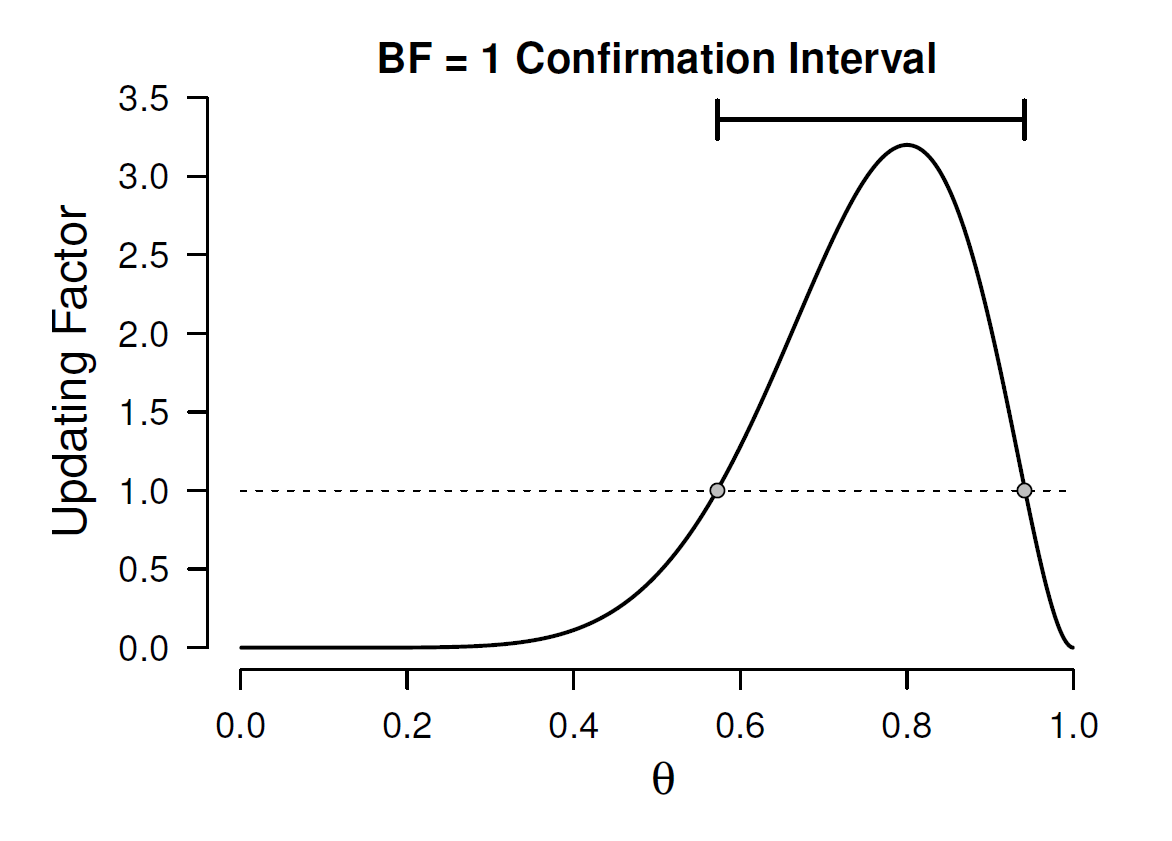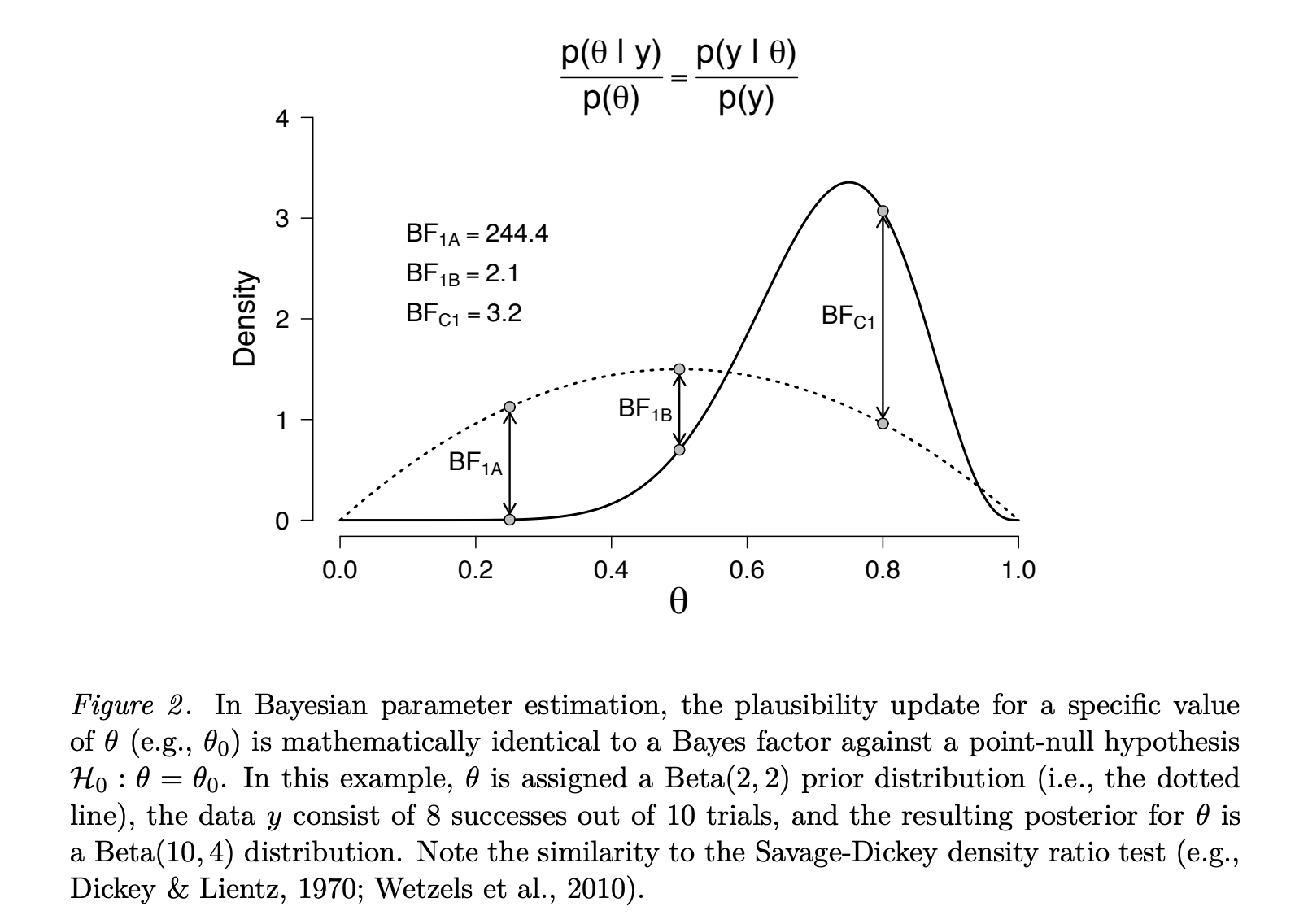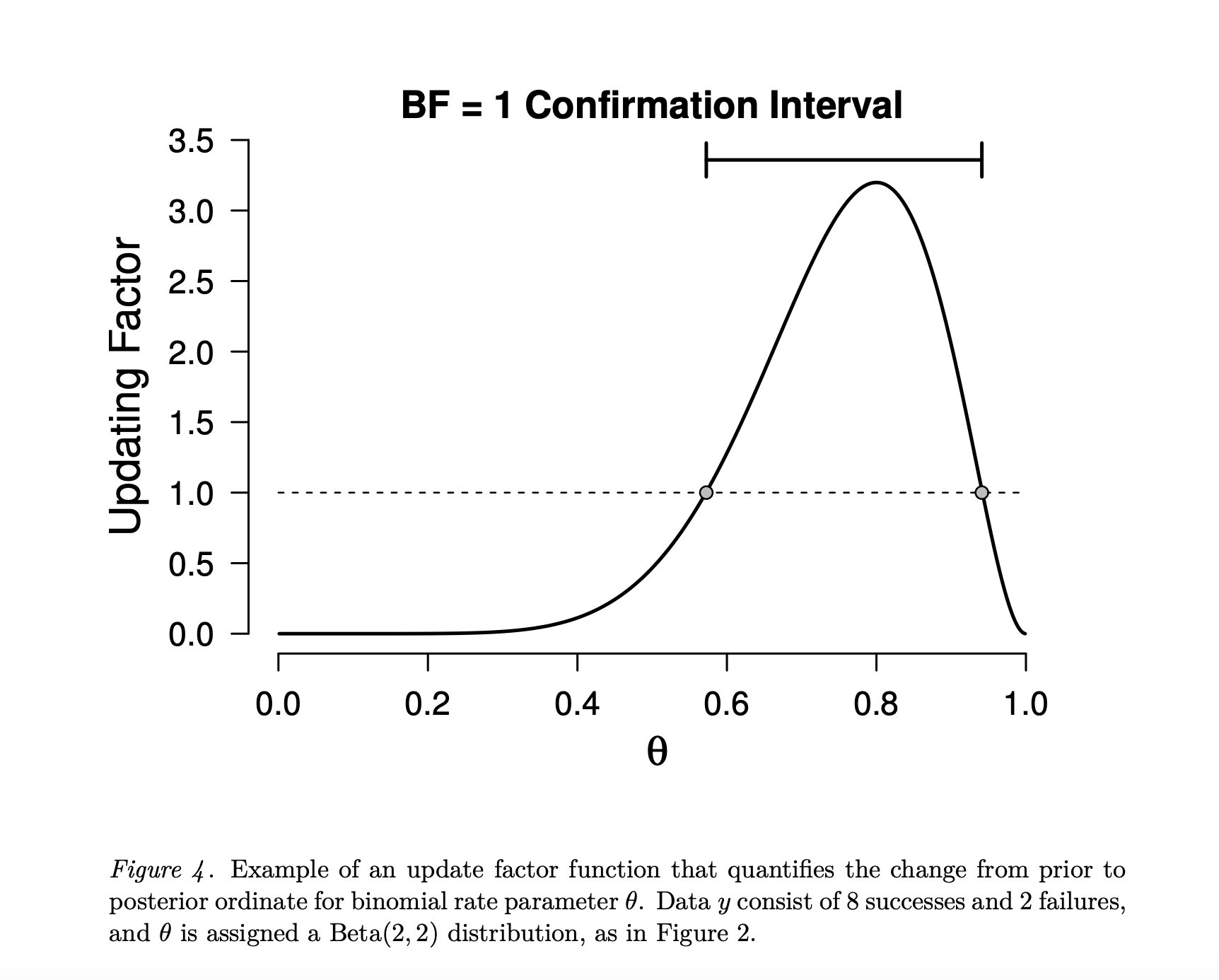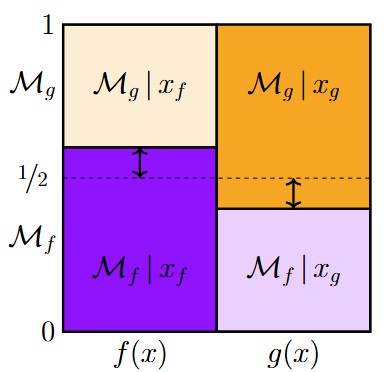This post summarizes Wagenmakers, E.-J., Gronau, Q. F., Dablander, F., & Etz, A. (in press). The support interval. Erkenntnis. Preprint available on PsyArXiv: https://psyarxiv.com/zwnxb/
Abstract
A frequentist confidence interval can be constructed by inverting a hypothesis test, such that the interval contains only parameter values that would not have been rejected by the test. We show how a similar definition can be employed to construct a Bayesian support interval. Consistent with Carnap’s theory of corroboration, the support interval contains only parameter values that receive at least some minimum amount of support from the data. The support interval is not subject to Lindley’s paradox and provides an evidence-based perspective on inference that differs from the belief-based perspective that forms the basis of the standard Bayesian credible interval.
The Support Interval
References
Evans, M. (2015). Measuring statistical evidence using relative belief. Boca Raton, FL: CRC Press.
Wagenmakers, E.-J., Gronau, Q. F., Dablander, F., & Etz, A. (in press). The support interval. Erkenntnis. PsyArXiv Preprint: https://psyarxiv.com/zwnxb/
About The Authors

Eric-Jan Wagenmakers
Eric-Jan (EJ) Wagenmakers is professor at the Psychological Methods Group at the University of Amsterdam.

Quentin Gronau
Quentin is a PhD candidate at the Psychological Methods Group of the University of Amsterdam.

Fabian Dablander
Fabian is a PhD candidate at the Psychological Methods Group of the University of Amsterdam. You can find him on Twitter @fdabl.

Alexander Etz
Alexander is a PhD student in the department of cognitive sciences at the University of California, Irvine.






